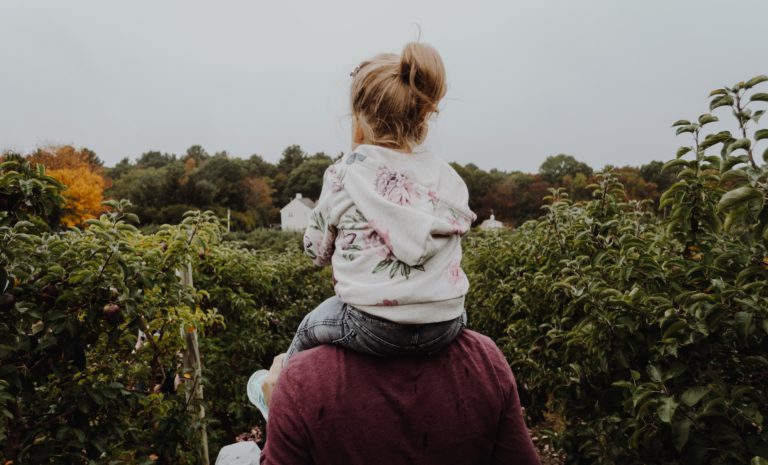
As I walked into my waiting room I saw two familiar faces smiling back at me, a few words were spoken and we embraced in warm hugs acknowledging the past roads jointly travelled and the joy of reconnecting.
I had met Jess and Dan 3 years earlier in the Neonatal Intensive Care Unit when they attended a Mindful parenting workshop I was running. Their little girl was now a beautiful 3 year old and they were desperate to give her a sibling. Jess asked if it was okay if Dan attended the session also, “of course” I replied. Whenever a partner is available to attend I would jump on the opportunity, as fathers were hard to gather mainly due to long working hours, attending sports/training, or caring for their other children.
Having the father present for the session was an occurrence that was very few and far between no matter how often I suggested it.
Dan was open for screening of symptoms of depression, anxieties and stress along with Jess. Dan’s self reported measures of depression, anxiety and stress scored significantly higher than Jess’. They both openly shared the experience of a complicated twin pregnancy resulting in their boys being born extremely prematurely and surviving for only a few weeks. They were respectful & empathetic of each other’s emotions. Dan requested assistance in working through their grief and loss together as they had been trying to conceive.
I grappled with whether to disclose to them that Dan’s symptoms of depression and stress were higher than Jess’. I decided to mention that they were both measuring symptoms and with the given history I would be happy to work with them both. Requesting that the partner attend at least one session was common practice as mental illness can have a knock on effect on significant others in the family. This offer was not taken up often, for many reasons; fathers working long days, sports and training, caring for the other children, or the mother preferring her own time & safe place.
Studies have indicated that fathers feel more comfortable addressing parenting issues with the mother present, and that in some instances the mother may “gate-keep” when and if the father is involved.
On a few occasions when a partner had attended a joint session following a mother disclosing a lack of support or feeling distant from him, the partner would score high on depression, anxiety or stress symptoms warranting intervention. Following a discussion around a referral for the father was not always received well by the mother resulting in me being sacked!
For Dan and Jess, we worked in collaboration and although Dan was known as her ‘rock’ he was able to embrace vulnerability, stay true to his value system and let go of the façade . As they attended jointly they were also working individually on their own perception and experiences. Dan openly shared, asking thought provoking questions, opening up dialogue to greater depth of exploration and at times would suggest supportive means of working through their issues. Some studies have indicated that dads attend meeting, groups and events more often when the partner is also present.
Our sessions were sad and moving, calming and thought provoking and at other times fun and playful.
It was a healing journey and excitedly they were rewarded with a healthy pregnancy and birth of a precious baby sister for Lily.
I have no doubt that their courage, willingness to connect & to openly talk about their pain points together and with professional support guided their strength to navigating the good, the bad & the ugliness of depression, anxiety, grief & loss.
In my experience both mum and dads accepting of working through their mental health problems have built a stronger healthier foundation on which the family unit can flourish.
As Donald Winnicott, Paediatrician, Psychoanalyst of the 1950’s shared great insights into the life and mind of the baby and parents. He coined the phrase “There is no such thing as just a baby” meaning that no baby can exist alone they can only exist in relation with another. Social emotional connection in relationships as we know from Attachment theorist John Bowlby and many more since him, is the essential ingredient for survival, a healthier psyche and a means to thrive in a busy stressful world.
To be in a relational, social emotional connection with another is an innate feature of humanity. When we feel or experience being on the outer, disconnected, or a loss of identity from others, stress, anxiety and depression begins to grow. Early parenting is a one of those times where we experience this.
We all carry a light in search of a connection, a sense of belonging and attunement with others no matter what age or circumstance, be it with a mother, father, child, grandparent, friend, colleague, tribe, or community.
Having a safe place for dads and couples to openly talk and connect in relation to their mental health and family concerns can only be of benefit to all members of the family. The recent awareness of PND in fathers and the parity in statistical terms it shares with mothers’ presentations is a light bulb moment that cannot be ignored. Dads need to be heard, seen and supported just as much as mothers. Open up to the difficult talking points and let dads matter too. Your family’s future starts NOW!
Linda
Linda Hayes-Cooper | Parent-Infant Coach
M.Clinical Psyc | B.Psyc (Hons 1) | Midwifery Cert. C&FH


